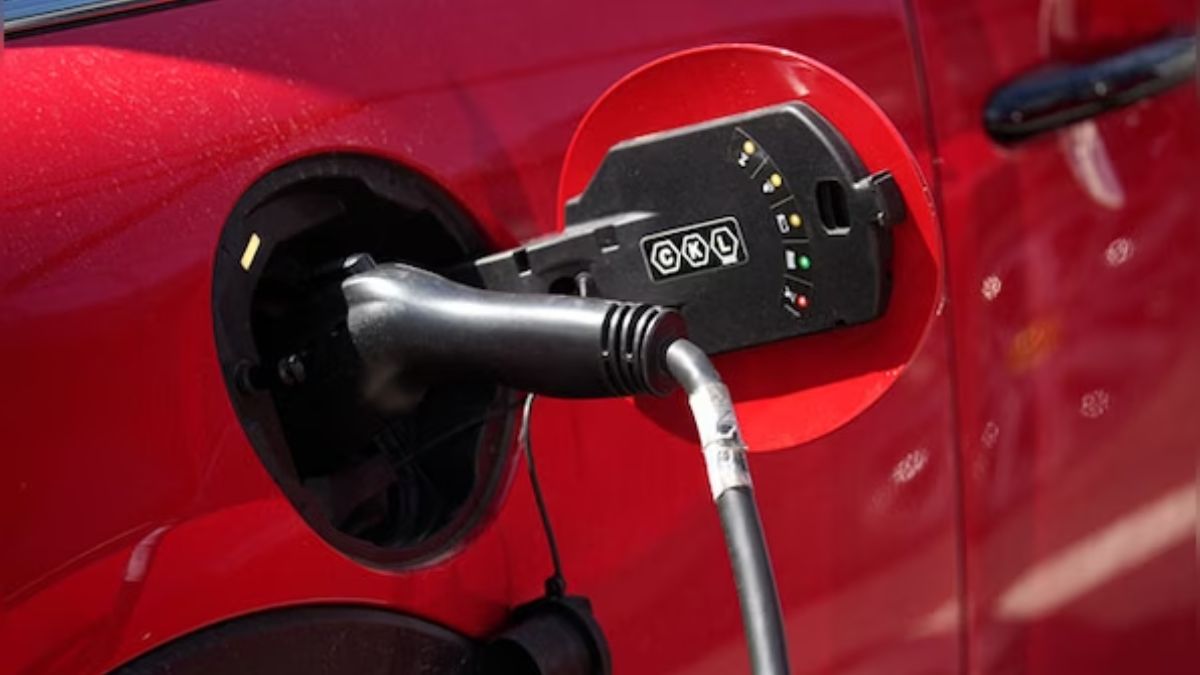When President Donald Trump signed the so-called Big Beautiful Bill into law on July 4, he likely saw it as a bold stroke in support of American industrial self-determination. What may not have been intended, however, was that the bill would provide an unexpected geopolitical and commercial win for Chinese electric vehicle (EV) manufacturers.
The law, which effectively ends consumer tax incentives for EVs after September 30—phasing out the $7,500 new EV and $4,000 used EV tax credits—has drawn applause from supporters of internal combustion engines in the US. But across the Pacific, the head of China’s Passenger Car Association (CPCA), Cui Dongshu, has interpreted it as a strategic opening for Chinese automakers abroad, the Wall Street Journal said in a report.
Cui reportedly suggested that the rollback in US subsidies could expand opportunities for Chinese brands overseas, positioning them to capitalise on the growing demand for EVs in markets outside the United States. He described internal-combustion engines as “obsolete technology” and framed Chinese offerings as “intelligent EV models” ready to take their place.
A boon for Chinese exports
The data coming out of China supports Cui’s optimism. According to the CPCA, exports of new energy vehicles (NEVs)—a category that includes both battery EVs and plug-in hybrids—rose 48 per cent in the first half of 2025 compared to the same period in 2024. In June alone, exports more than doubled year-over-year, hitting 198,000 units, the Wall Street Journal report said.
Major Chinese automakers like BYD, which now operates its own fleet of shipping vessels, have ramped up overseas expansion, motivated in part by intense domestic competition. In China, local brands increased their market share to 64 per cent in the first half of 2025, up 7.5 percentage points from a year earlier. Meanwhile, Tesla, China’s most prominent foreign automaker, saw a 5.4 per cent decline in first-half sales in the country.
Amid these pressures, Chinese EV makers are moving toward global markets. With the US now rolling back EV incentives and muddling the domestic regulatory framework, these companies see new opportunity in Europe, Southeast Asia, Latin America and even parts of North America.
Impact Shorts
More ShortsUS auto industry: Divided and disoriented
Domestically, the American auto industry has been anything but unified in its response. According to reporting by Politico in June, internal divisions within the Alliance for Automotive Innovation—a key lobbying group—have prevented it from taking a public stance on the bill. Some automakers support parts of the legislation, while others argue that it undercuts long-term US competitiveness in clean vehicle technology.
For example, General Motors (GM) reportedly backs new “foreign entity of concern” restrictions that could disqualify companies using Chinese tech from accessing key manufacturing credits. GM, which has realigned its supply chains domestically, believes it stands to benefit.
Other manufacturers like Ford and Volkswagen, however, have expressed concern that the rules are overly restrictive and threaten projects such as Ford’s battery plant in Michigan that relies on Chinese licensing.
This intra-industry discord undermined collective lobbying efforts. One industry insider told Politico that GM’s stance might yield short-term advantages but risks “helping Chinese auto manufacturers gain a foothold in the global auto marketplace” while simultaneously handicapping American competitors.
Strategic realignment or strategic retreat?
From a policy standpoint, Trump has described the bill as a deregulatory triumph. In posts on Truth Social, he emphasised that Americans were now “allowed to buy whatever they want—Gasoline Powered, Hybrids (which are doing very well), or New Technologies.” He framed it as an end to the so-called “EV mandate,” which he claimed was forcing people into electric vehicles prematurely, a Stocktwits report said.
However, many feel that this policy shift amounts to a strategic retreat in the global EV race—one that could embolden Chinese automakers who have made massive state-supported investments in battery technology, intelligent vehicle systems and international logistics networks.
According to Politico, the manufacturing credit restrictions, especially the 45X rule changes, are so severe that most automakers cannot realistically comply. Volkswagen and Mercedes-Benz officials have called the rules convoluted and stifling, warning that they imperil planned expansions and force companies to reevaluate their investment in US manufacturing.
EV momentum: Relocating, not stopping
While the US may be stepping back from incentivising EV adoption, other regions are not. China, for instance, continues to roll out policies that stimulate domestic demand and make trade-ins more attractive. The country’s passenger-car market grew 18 per cent in June alone, according to CPCA figures. And even though profit margins are being compressed by intense domestic competition, Cui predicted an industry-wide sorting process that would decide winners and losers in the next phase of global auto development.
For Chinese firms like BYD, NIO and XPeng, the reshuffling of the US policy environment presents an opportunity to present their models as technologically advanced alternatives to what they view as America’s regressive automotive choices. Their success will depend not just on product innovation but also on tackling trade barriers, brand perceptions and international regulations.
America’s missed opportunity?
Ultimately, observers suggest that the US megabill might be less of a patriotic boost for domestic industry than a globally significant policy misstep. By stepping away from incentives that were originally designed to help US automakers compete in the 21st-century EV race, Washington may have ceded ground at a critical moment.
The irony is that a bill designed to free American consumers from regulatory constraint might instead end up tying the hands of its manufacturers. Chinese automakers, on the other hand, are poised to take advantage. If global demand for EVs continues to rise, and all signs suggest it will, then China’s automakers may find themselves driving straight through the door the US has left ajar. And they will thank Trump for his Big, Beautiful Bill.
)